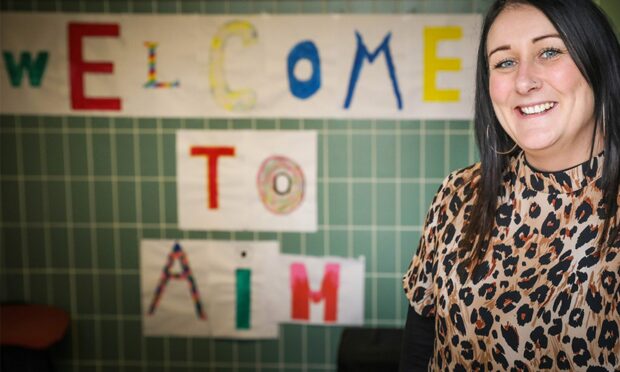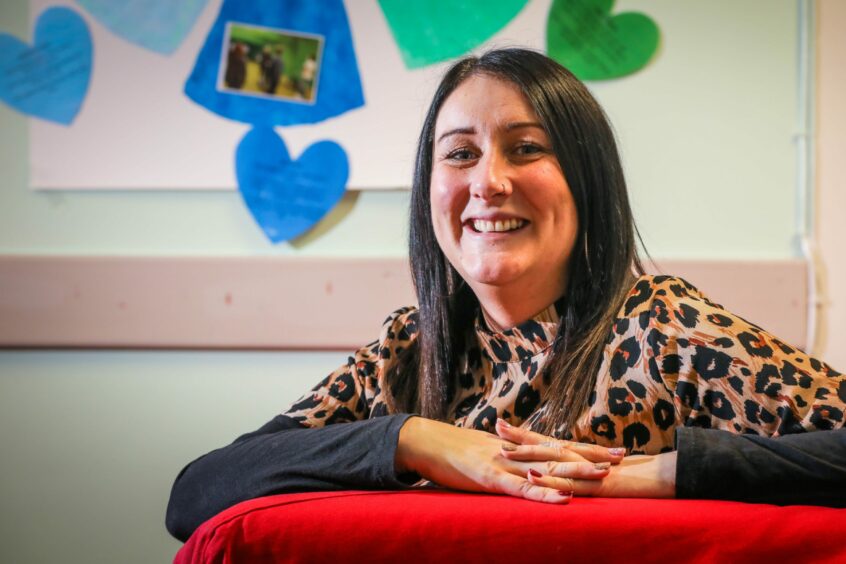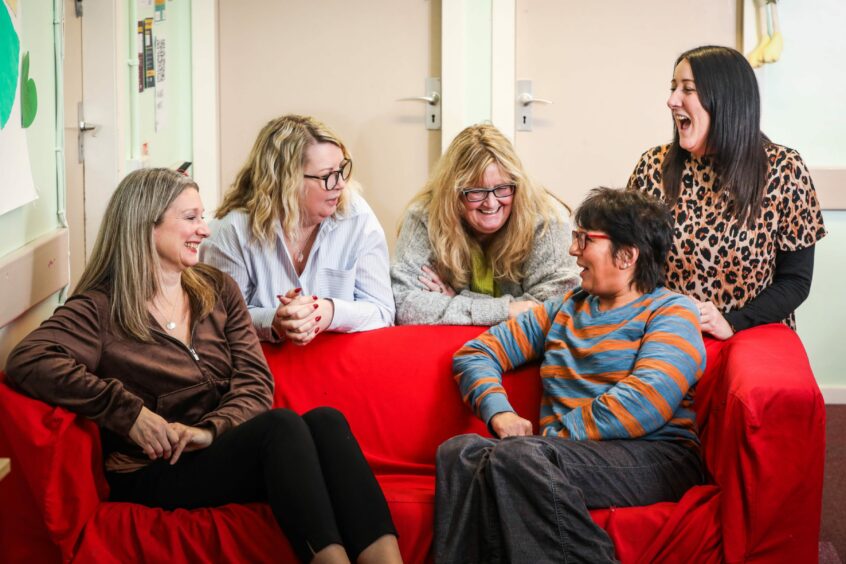Some teenagers are so racked by anxiety they won’t leave their bedrooms when teacher Jenna Yule meets them.
But it’s her job to help young people who can’t or won’t go to school return to lessons – and she often sees them progress from housebound to starting college or university.
Jenna is principal teacher of Dundee’s Anxiety in Motion project, established several years ago due to a rising number of pupils in the city missing school due to poor mental health.
It’s for those diagnosed with anxiety and with secondary school attendance of 30% or less – a situation termed emotionally-based school avoidance.
Jenna and her fellow outreach teachers usually start by spending an hour a week with AIM Dundee pupils in their own home.
Then they gently help them to progress in stages to four days a week of lessons a city community centre.
Dundee school alternative has limited available spaces
But only a fraction of those who need AIM are able to access it. It is limited to 24 pupils on its full-time programme, 10 at outreach level and eight at its mid-stage drop-in sessions.
Jenna said: “We could fill AIM three times over through the referrals that we have but we can’t make it any bigger than it is otherwise we make it what the young people are trying to get away from.”
AIM evolved from an outreach teacher providing one-to-one support for pupils classed as school refusers or school avoiders.
She realised that more young people could be helped by pulling together a team.
Young people are usually referred by their guidance teacher when they are struggling to attend school.
Jenna or a colleague will visit their family – and the pupil if they feel able – to assess whether they will benefit from AIM.
She said: “A lot of our young people aren’t even leaving their bedrooms when they get referred to us.
“They are just at home, they even struggle to go out with family.
“With a young person like that an outreach place is most appropriate so they are not having to leave their safe space at first and they can build up their relationship with one of the teaching staff.
“Once they are comfortable they come in to drop-in sessions.”
Dundee AIM students in college and university
In the early stages, a teacher will to the young person’s home and spend an hour with them each visit, easing them back into learning and getting to know them.
When the pupil feels a little more confident they can try AIM’s drop-in service, going to it’s base at Kirkton Community Community where there will be no more than five young people and one teacher.
The final stage is to attend AIM full-time, which is 10am to 2pm Tuesdays to Fridays. Even then, numbers are limited so pupils are part of a small group in a relaxed setting and they don’t feel overwhelmed.
More in our school refusers series:
- Dundee teenagers reveal why they won’t – or can’t – go to class
- Autistic Fife teenager Alannah missed her entire final year
- Fife counsellor says bullying and violence can make children too scared to go to school
- Angus parent reveals anguish of daughter too anxious for school
- The law and advice for when kids won’t go to class
Pupils work towards national qualifications up to Higher level in subjects including maths, English, accounts, personal finance, history, modern studies, Scottish studies, French, Spanish and biology.
At the same time, they are encouraged to discuss their mental health and wellbeing and look at coping strategies to help them in future – for life and work.
There is also one-to-one weekly support for the pupils from CAMHS, the NHS child and adolescent mental health service.
When initial contact is made our pupils… feel that they have no friends and no chance of achieving anything academically.
By the time they leave, they are confident, happy, achieving and with a real sense of purpose.”
Jenna Yule
Jenna said: “By the time they are at core [full-time] AIM we notice a huge difference in them.
“We have young people going from no attendance at school to full attendance with us, achieving national qualifications then going on to college.”
Some pupils return to mainstream school to do their Highers, but AIM has even had a couple go onto university.
Jenna said: “One just contacted us recently to say they are graduating from university and one is in second year doing a subject they would never have dreamed of doing back when they were in their bedroom.”
She and her colleagues feel immense pride to see AIM pupils grow in confidence.
Jenna said: “When initial contact is made our pupils usually display low mood, struggle with eye contact, and feel that they have no friends and no chance of achieving anything academically.
“By the time they leave, they are confident, happy, achieving and with a real sense of purpose.
“They have overcome all the difficulties they had and been able to achieve their goals.
“That’s what we’re here to do; help young people achieve what they want in life.”













Conversation